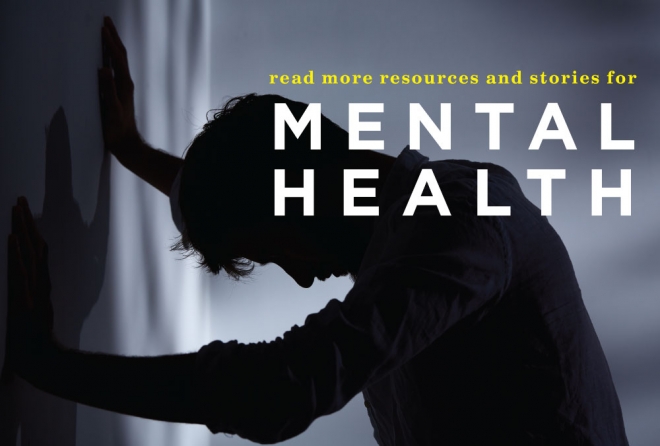Stress: Why and How You Should Reduce It
Editor’s Note: This is part of our Mental Health series. Type 1 isn’t just about counting carbs, checking blood glucose levels (BGLs) and administering insulin. The disease takes an emotional and psychological toll as well. Check out other clinical information and personal stories about Mental Health.
Everybody experiences stress throughout his or her life. You could lose a job, home or loved one. You could suddenly lose your health. Certainly at some juncture, you’ll be stuck in traffic or step in gum or endure any number of unwanted situations. But if encountering stress is all a part of the human experience, what does it mean for someone with type 1?
Essentially, when the body senses a threat—perceived or actual—it has a physical reaction by releasing the stress hormones of epinephrine (commonly known as adrenaline) and cortisol (also known as the fat-layering hormone). These hormones trigger the liver to produce extra energy called glucose that your cells can then use to fight the threat (super-hero-style) or flee the scene (a.k.a. Road-Runner-exit).
Sudden increases of glucose can pose a dangerous scenario for a type 1 diabetes (T1D). Without insulin, the extra glucose energy piles up in the blood, unable to reach the cells for which it’s intended. This state is known as hyperglycemia and can occur when you’ve simply eaten more than you planned or exercised less than you intended. What makes stress so dangerous though is that more often than not, it goes undetected. On top of that, long-term exposure to stress can cause long-term high blood glucose levels.
Symptoms of hyperglycemia
- High blood glucose
- High levels of sugar in the urine
- Frequent urination
- Increased thirst
Remember that a stressed person is also less likely to take care of himself or herself. When it comes to having type 1—a chronic illness that relies so heavily on self-care and self-monitoring—failing to take care of yourself can have dire consequences and lead to diabetes complications if left untreated. Here is what stress can affect:
- Eating habits (whether that’s paying attention to the quality or quantity of food you’re consuming)
- Frequency of checking your blood glucose levels
- Increase of alcohol consumption
- Decrease in exercise
- Excessive and unchecked stress can lead to anxiety and possibly depression
Find out if you’re exhibiting signs of anxiety or depression.
Having T1D doesn’t mean you have to insulate yourself from all things potentially stressful; it does mean though that you should be aware of the damage it can do to your overall health if it isn’t managed. Here is Beyond Type 1’s list of seven easy ways to chillax, no matter how big the problem, how heavy the heart.
1. Eliminate what’s stressing you out
While this seems obvious, it should be your first plan of action. You might not be able to completely avoid the stress, but you could reduce it by brainstorming alternatives and problem solving. If you want to avoid rush-hour traffic, try leaving at a different time or adopt a new route. If a relationship is troubling you, see if you can make amends. If you find you cannot accomplish tasks at hand, find new ways to get organized.
2. Exercise
This will naturally decrease your blood glucose levels. Do not exercise though if you have ketones in your urine, (because your blood glucose levels could go even higher). Exercise in general releases endorphins that contribute to you feeling less pain and fewer negative effects of stress. Physical activity also aids in diffused thinking, helping you problem solve when you aren’t even consciously trying. Make sure to exercise within your limits though, listening to your body and checking blood glucose levels throughout. T1D Workout Basics.
3. Breathe
Did you know that when you’re stressed you take rapid, shallow breaths instead of deep ones? A slow and controlled breathing practice can help you de-stress at anytime. Relax your body, close your eyes and just breathe. Yoga is a great way to combine deep breathing with meditative stretching for optimal stress relief. If you can’t make it to a studio or have trouble finding your lotus pose, check out these five breathing techniques you can do straight from your office chair (Fitbit).
4. Recite Affirmations
It may seem hippy dippy, but you’d be surprised how convincing positive mantras are. Replacing negative sentiments with “I can fix this,” or “It’s not a big deal,” can make a huge difference in how you deal with daily stressors. And if you repeat these positive thoughts enough, you just might believe them and avoid succumbing to the fight-or-flight response.
5. Communicate
It’s so important to talk to someone about how you’re feeling. Whether it’s with a friend, parent, counselor, or diabetes educator—share how you’re coping with the day-to-day. Verbally unburdening ourselves with our grief helps to rid us of the grief itself. You might even get some great advice from those who have been there or can understand.
6. Touch
Experts agree that physical contact actively quells anxiety. Whether it’s a snuggle with a loved one, a massage from a stranger or a belly rub for a pet—touch establishes feelings of security and comfort. When you feel like the world is on your shoulders, don’t be afraid to reach out.
7. Record
It helps to write it down. Keep a journal for your personal record of how you’re coping emotionally. If you’re struggling with something, jot it down. Brainstorm ways in which you might resolve it. Writing can be a lot like talking in the sense you absolve yourself of stress by simply describing what is bothering you. It can also serve as a reminder to seek outside help if you can’t resolve the stressor on your own.
While experiencing stress is an inevitable part of life, implementing ways to de-stress is imperative for people living with type 1. We all could do a better job with our stress management. Identifying what stresses us out is a good place to start. Then see if you can eliminate or reduce that stress. If that doesn’t work, adopt a coping mechanism that’s right for you. Life isn’t easy, but it can be easier.
Verified by Dr. Mark Heyman, director of the Center for Diabetes and Mental Health (CDMH) in Solana Beach, CA. Mark received his PhD in clinical psychology from The George Washington University and completed his clinical training at UCSD School of Medicine.
- How Diabetes Impacts Your Mental Health by Mark Heyman (PhD, CDE)
- Depression and its Relationship to Type 1
- Diabetes Burnout by Mark Heyman (PhD, CDE)





